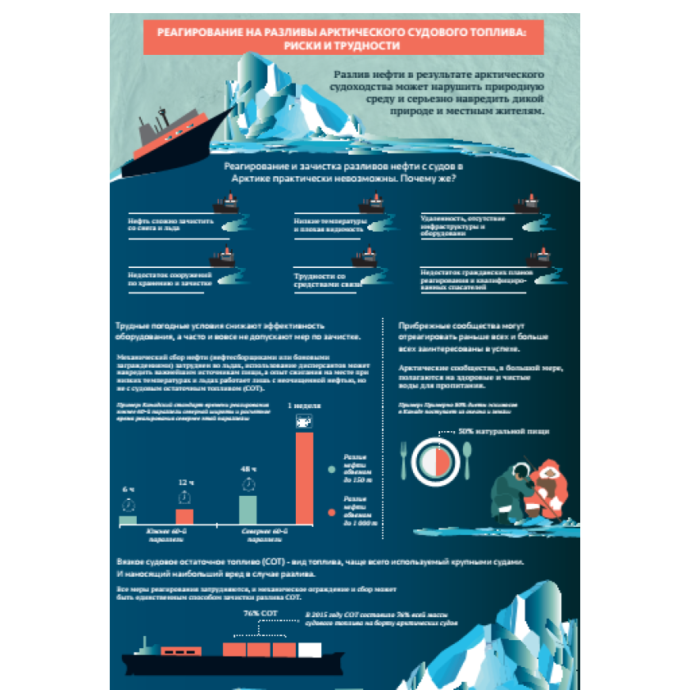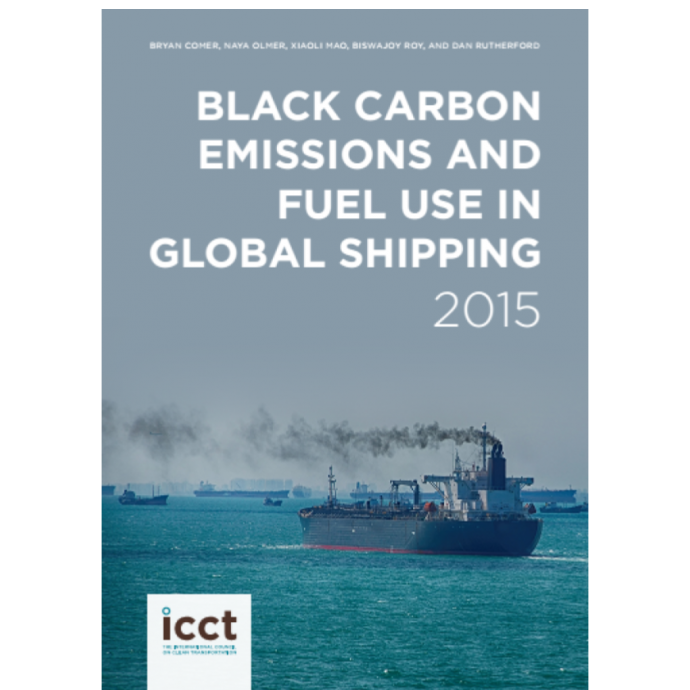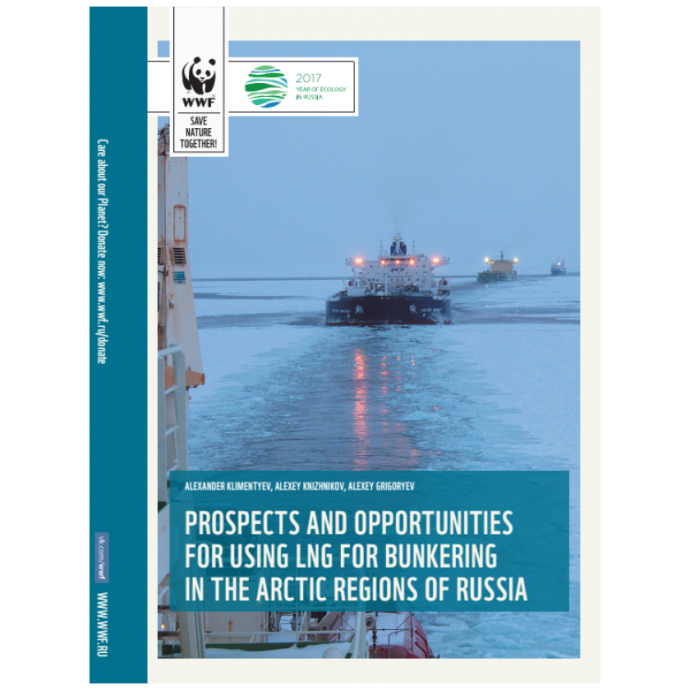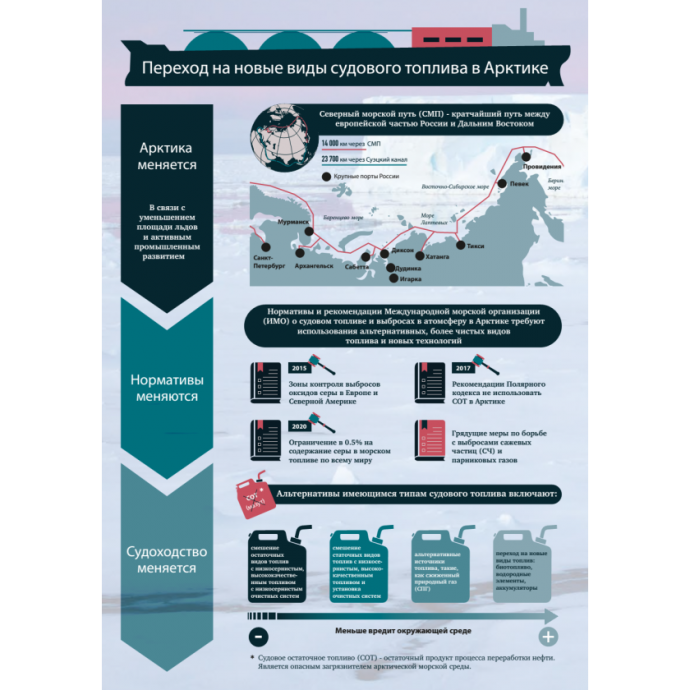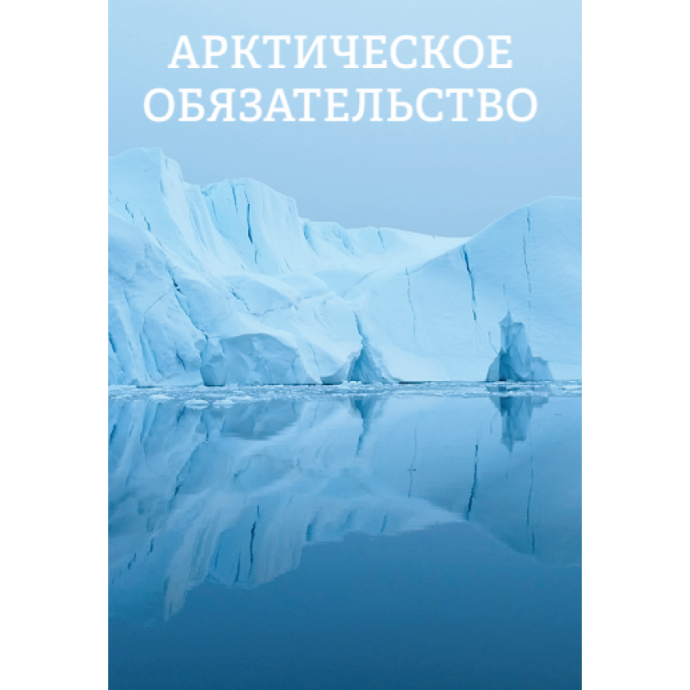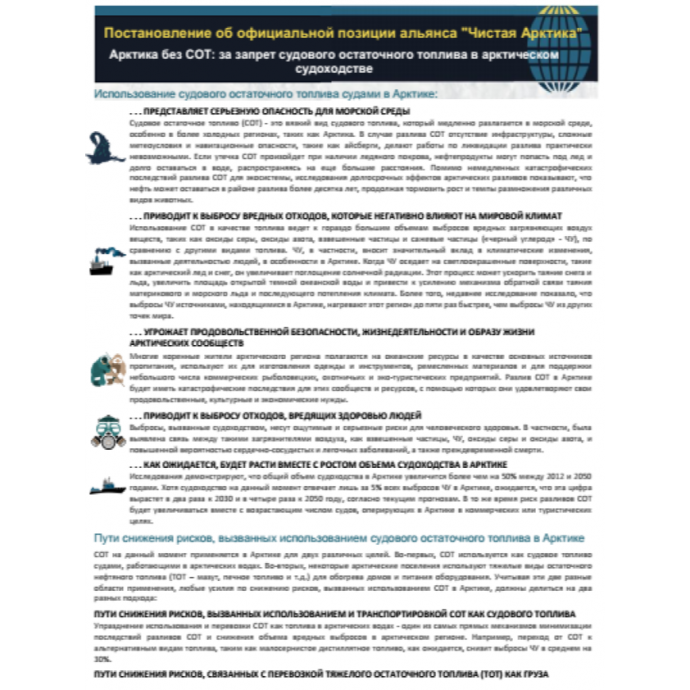Lisa Grau
Five briefings: Heavy Fuel Oil use by flag state | ship type| ship owner| cruise ships | fishing vessels in the IMO Polar Code Arctic, 2015
Five briefing papers prepared by Bryan Comer PhD, The International Council on Clean Transportation (ICCT)
The use of heavy fuel oil (HFO) as a marine fuel poses serious environmental and economic risks, especially in ecologically sensitive areas like the Arctic. Using HFO is risky not only because of potential fuel oil spills, but also because burning it produces harmful air and climate pollutants, including black carbon (BC). As ship traffic increases in the Arctic, the risk to the Arctic environment and its peoples will also increase.
These 5 briefings look at HFO use by flag state, ship type, ship owner, cruise ships,| fishing vessels in the IMO Polar Code Arctic, 2015.
Black Carbon Emissions and fuel use in global Shipping
An ICCT report by Bryan Comer, Naya Olmer, Xiaoli Mao, Biswajoy Roy, and Dan Rutherford
December 2017
Ships are an efficient way to move cargo, transporting approximately 80% of the world’s goods by volume, but ships also threaten human health, ecosystems, and the climate. This report focuses on the air and climate pollutant black carbon (BC). As one component of fine particulate matter (PM2.5), BC contributes to heart and lung disease and is also a danger to the environment. Globally, BC from all sources is the second largest cause of human-induced climate change and is contributing to the rapid decline in Arctic sea ice.
This report presents a bottom-up, activity-based global inventory of BC emissions, residual fuel use, and residual fuel carriage from commercial ships in the global fleet for the year 2015. In addition, the report analyzes the BC reduction potential of four technology scenarios: switching all ships from residual to distillate fuels; switching some ships from residual or distillate fuel to LNG; installing exhaust gas cleaning systems on ships; and installing diesel particulate filters (DPFs).
Prospects and opportunities for using LNG for bunkering in the Arctic regions of Russia
May 2017
A WWF report by Alexander Klimentyev, Alexey Knizhnikov, Alexey
The Arctic region of Russia is considered to be one of the key economic areas and can open up a crucial transit route, connecting Europe and Asia.
A unique feature of this route is that there is a possibility to set up LNG bunkering facilities along almost the entire length of it, using natural gas from on- and offshore deposits.
This report presents data, facts and arguments for wide LNG implementation in Russian Arctic.
Переход-на-новые-виды-судового-топлива-в-Арктике
2017 год, Год экологии в России, позволил привлечь внимание и принять практические меры по снижению зависимости от судового остаточного топлива (ТОТ) в судоходстве, а также расширить область применения сжиженного природного газа (СПГ) в качестве судоходного топлива. Данная инфографика демонстрирует плюсы перехода от остаточных видов топлива к альтернативным, с особым фокусом на СПГ, и их способность удовлетворить требования и нормы по использованию судами более экологичных видов топлива и более современных технологий для снижения вредных выбросов в атмосферу.
2017, the Russian Year of Ecology, has created an opportunity to attract public attention and take practical steps away from dependence on heavy fuel oil (HFO) for shipping, and to expand the use of liquefied natural gas (LNG) use as marine fuel. This infographic shows the advantages of moving away from residual fuels to alternative fuels, with an emphasis on LNG, to deliver on international regulations and requirements that ships use cleaner fuels and new technologies in order to reduce emissions to the atmosphere.
АРКТИЧЕСКОЕ ОБЯЗАТЕЛЬСТВО
Launched in January 2017 by the Clean Arctic Alliance and cruise ship operator Hurtigruten, this leaflet explains the aims of the Arctic Commitment which are to encourage stakeholders to urge the IMO to phase out HFO use in Arctic shipping and urge shipping companies in the Arctic to switch from the use of HFO to cleaner fuels.
Постановление об официальной позиции альянса «Чистая Арктика»
Position Statement by the Clean Arctic Alliance — HFO-Free Arctic: Ban Heavy Fuel Oil from Arctic Shipping (Russian language)
The use of heavy fuel oil (HFO) by vessels operating in the Arctic poses a major risk to the Arctic marine environment. It produces harmful emissions that negatively impact the global climate, threatens the food security, livelihood and way of life of Arctic communities and produces emissions that impact human health. As the use of HFO is expected to rise as vessel traffic in the Arctic increases, the Clean Arctic Alliance strongly advocates the phasing out of the use of HFO as the most effective mitigation strategy as a matter of priority.

